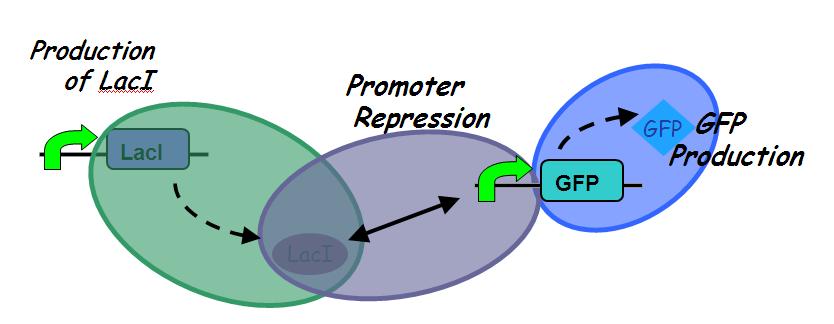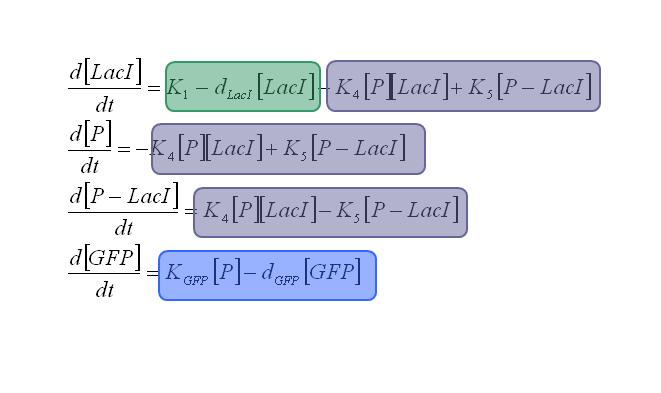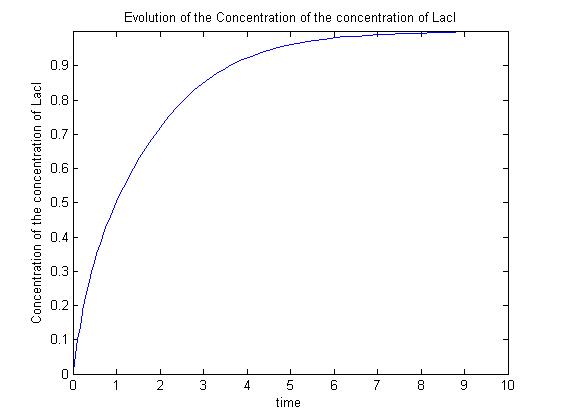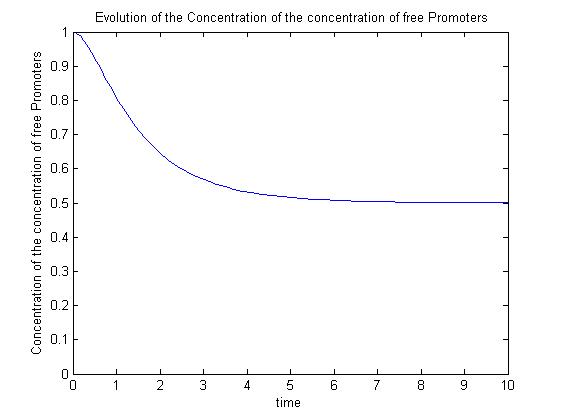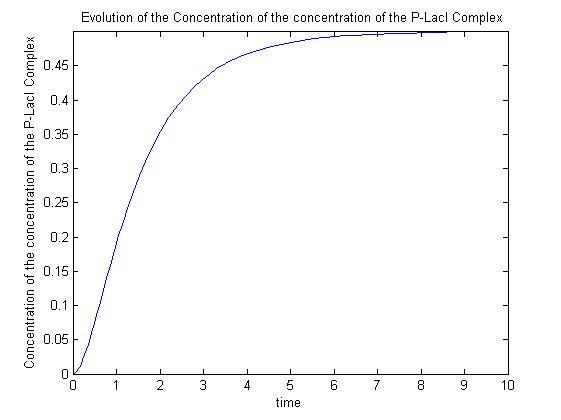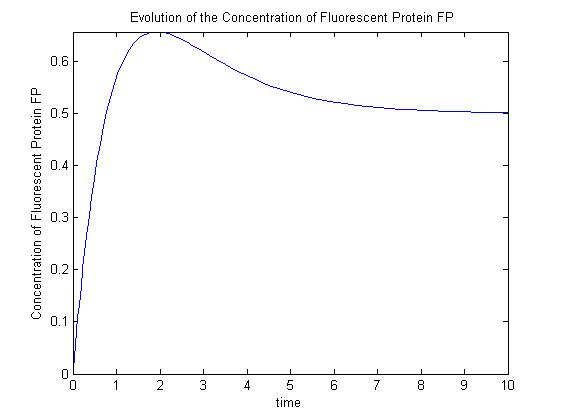Click here for more detail
From 2008.igem.org
Prudencewong (Talk | contribs) (New page: {{Imperial/StartPage2}} IPTG is an inducer which binds to LacI. LacI is a repressor that is constitutively expressed. It binds to the promoter preventing the promoter from expressing an...) |
Prudencewong (Talk | contribs) |
||
| Line 1: | Line 1: | ||
{{Imperial/StartPage2}} | {{Imperial/StartPage2}} | ||
| + | |||
| + | {{Imperial/Box1|Modelling the repression of the promoter | ||
| + | |||
IPTG is an inducer which binds to LacI. | IPTG is an inducer which binds to LacI. | ||
LacI is a repressor that is constitutively expressed. It binds to | LacI is a repressor that is constitutively expressed. It binds to | ||
| Line 46: | Line 49: | ||
the promoter completely. | the promoter completely. | ||
| - | + | }} | |
{{Imperial/EndPage|Growth_Curve|Motility}} | {{Imperial/EndPage|Growth_Curve|Motility}} | ||
Revision as of 18:30, 29 October 2008
|
|||||||
 "
"

